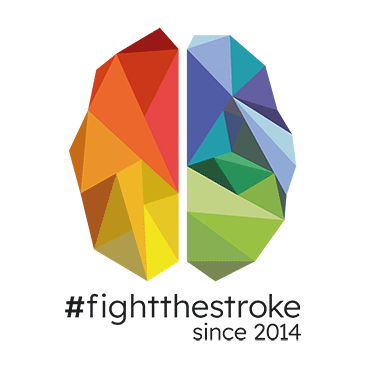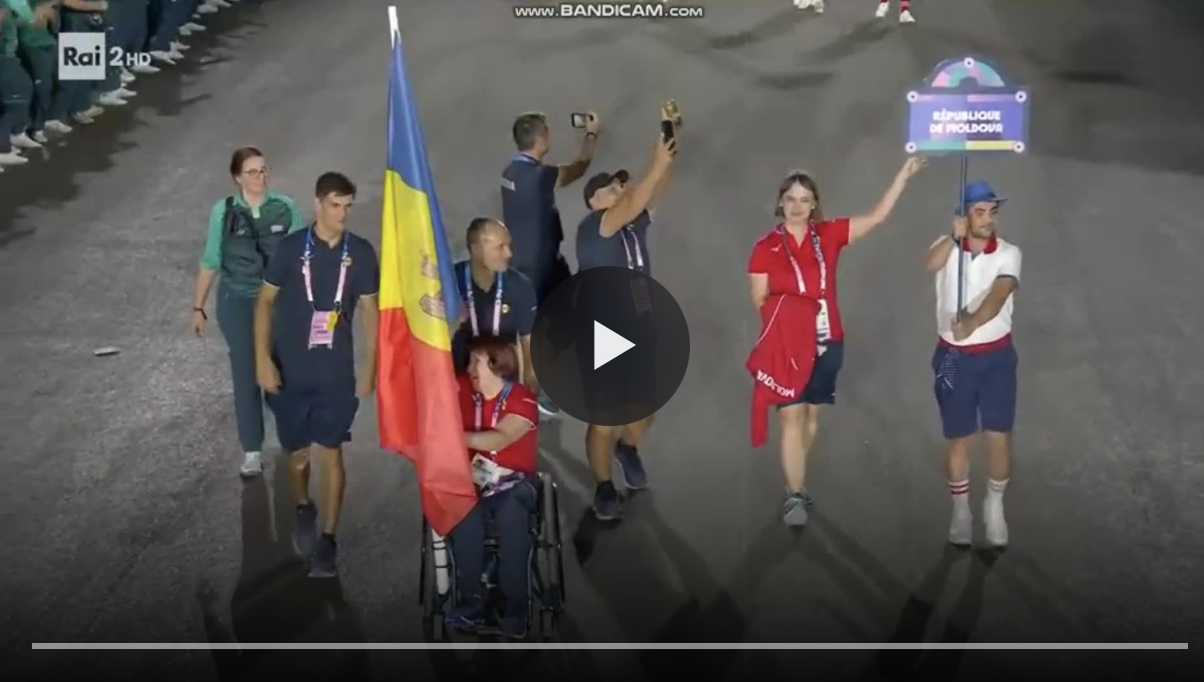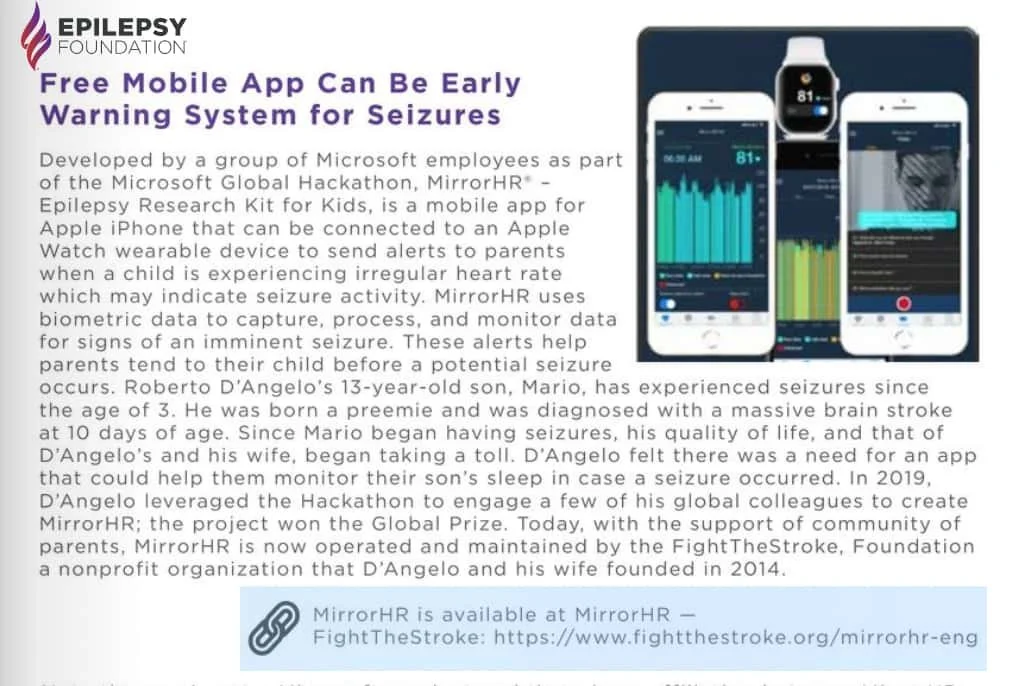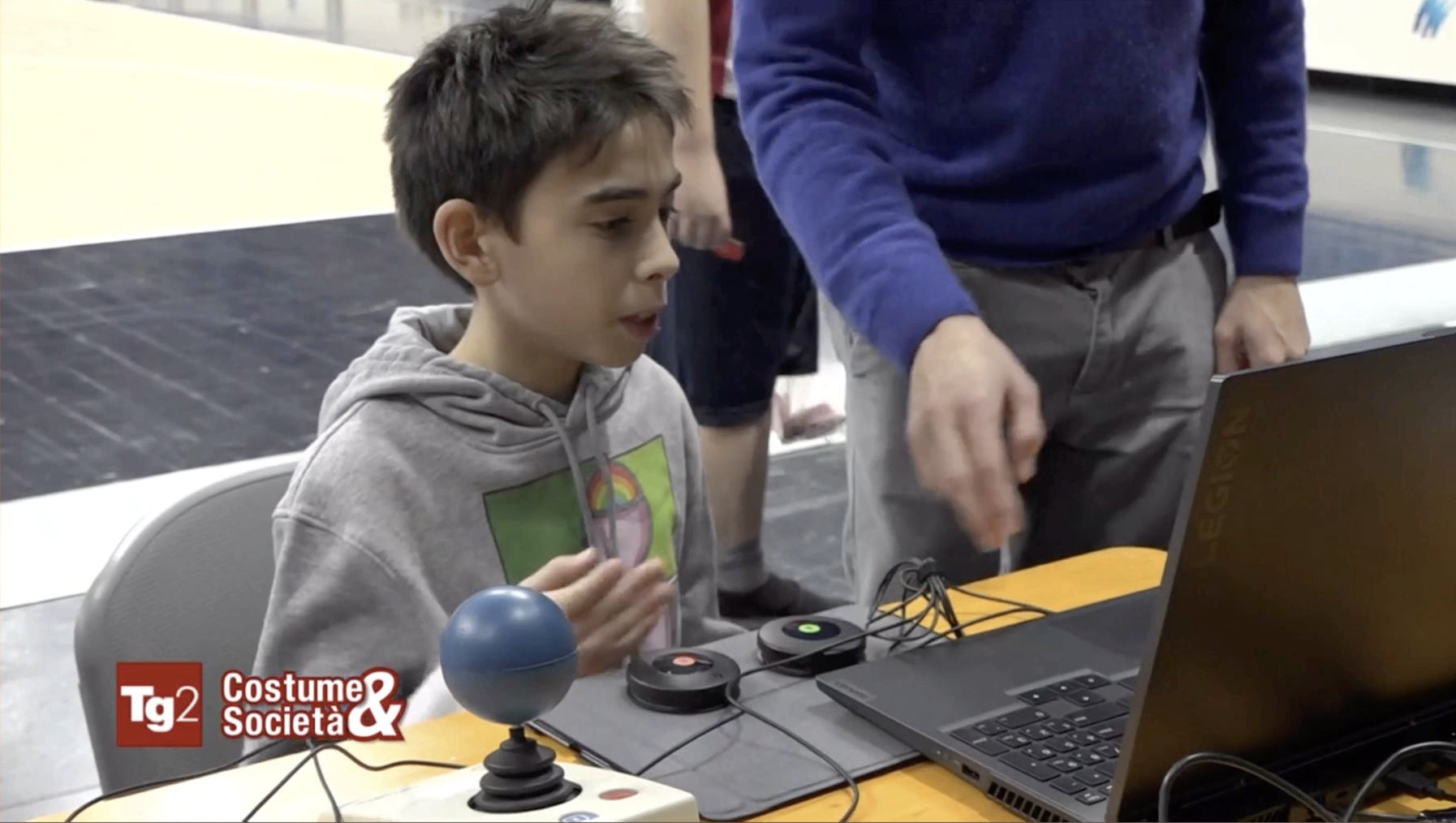Reflecting Parents’ Love
The Science Behind
A father’s path to peace of mind
On a cold December night in 2018, Roberto D’Angelo is speeding through the streets of Milan in an ambulance. After an infinite number of sleepless nights, Roberto feels destroyed. He’s exhausted and desperate.
His son Mario is having another seizure. What can he do to really help Mario, to reduce or even prevent these life-threatening emergencies that keep him up most nights? Roberto places his hand on Mario’s heart. It’s beating very fast, like it usually does when Mario has a seizure.
A spike in heart rate could indicate the onset of a seizure.
The biggest fear of parents of children with epilepsy is that a seizure could lead to SUDEP, or sudden unexpected death in epilepsy. Roberto thinks of how he could help calm this fear for himself and other parents.
Back at home, Roberto does some research and discovers that an accelerated heart rate is often linked to the onset of a seizure. He has an idea. His son could wear a device—like a smartwatch—to track his heart rate in an app, alerting him when it surpasses a normal rate.
FightTheStroke
Mario suffered a stroke at ten days old that increased his risk of seizures. He developed epilepsy at age three, which motivated Roberto and his wife Francesca Fedeli to establish FightTheStroke Foundation in 2014.
FightTheStroke is a network for parents of children with cerebral palsy and the conditions associated with it, including epilepsy, to share information and look for crowdsourced but validated solutions.
Roberto has been with Microsoft in sales and marketing since 1998, and isn’t sure how to build an app. How could he make this happen?
Apart from the risk, it’s the fear and fact that you lose your peace of mind. You can’t sleep anymore because you’re always checking if your son is breathing.
Francesca Fedeli
Co-founder, FightTheStroke
Roberto and Francesca believe the best way to help Mario is to help everyone like him and their parents. Through FightTheStroke, they created the MirrorHR epilepsy research kit, a platform to help support the burden of seizures in families like his.
The name MirrorHR was inspired by the mirroring relationship between a caregiver and a vulnerable patient. HR indicates the heart rate variable. As they explained in this memorable TED talk, Roberto and Francesca realized Mario looked to them for guidance. He was picking up on their sadness and stress, mirroring their emotions. They wanted him to instead see the best from them, their smiles instead of their fight.
MirrorHR: The app
In January 2019, Roberto decides to make his idea of a wearable device a reality. He dives into research, but soon discovers the data needed to oversee people with epilepsy is virtually inaccessible.
“Epilepsy research, despite the 50 million people in the world who have it,” says Roberto, “has made little progress in the last 30 years. Think about the number of people who are still drug resistant.”
Part of the problem is the data is fragmented, siloed within IT systems, hospital networks, and geographies.
Roberto knows parents of children with epilepsy struggle with accessing data. They feel as helpless as he does. There is really no way to reduce the frequency of their children’s seizures, much less know when they’re about to occur. Roberto realizes he has the power to change this with his smartwatch idea.
Connecting with fellow Microsoft employees who collaborated on the Hackathon.
Hack the future
As a Microsoft employee, Roberto has the opportunity to enter the 2019 Microsoft Global Hackathon. Here, employees are encouraged to tackle projects that fuel their professional and personal passions. He recruits a team of talented people with personal experiences related to autism, strokes, and surviving cancer. Their research reveals that an app to monitor a child’s heart rate through a smartwatch could work.
I fall asleep more calmly, knowing I have a technological ally.
MirrorHR user
Roberto and his team participate in the Hackathon with the intention of winning the Grand Prize for 2019, the Health AI Hack, and the AI for Accessibility Hack Challenge. And they do! The prize includes an incubation period in the Microsoft Garage for the team to partner with FightTheStroke and PBSF, a leading medical organization in Brazil, as part of Microsoft’s Hack for Good program. This allows employees to volunteer time supporting nonprofit organizations.
Making the dream a reality
A prototype of the app and smartwatch are brought to life. When Roberto finally sees it, he knows it’s going to work. The concept is simple and it’s easy to use. Basically, a child wears a smartwatch. The device monitors the child’s heart rate and alerts their parents through an app when certain heartbeat anomalies occur. The app also monitors biometric data, sending insights to parents and doctors.
Self-care options like prescription logs and a video diary allow parents to easily upload daily occurrences and detect patterns. Azure machine learning extracts information from the videos, detecting patterns and triggers that may impact the likelihood of seizures.
“At night, I discovered that my daughter had minimal seizures that I would never have noticed. When my daughter goes to bed, she is delighted to put the watch on because then she has a lot of fun asking questions. I put a little dog as a dial that I told her guards her,” says a parent who uses the app.
Three years after winning the Hackathon, Roberto is where he wants to be, but there’s still a lot of research that needs to be done. Families around the world are beta testing the device, sending valuable data anonymously to speed development and increase its marketability. The goal is to make it simple to use and as accurate as possible.
“I have become a MirrorHR-addict: I fall asleep more calmly, knowing I have a technological ally. Every night, I see the heart rate trend in real-time and periodically download the data to calculate the average heart rate, correlate it to events, and understand if there are stressful things that worsen the picture,” says a parent who uses the app.
Roberto wants to create a movement between parents and doctors who care. His goal is to help families like his sleep well at night. So far, parents are getting more sleep, and kids love wearing a smartwatch to bed.
Visit MirrorHR to learn more about and support the project.










